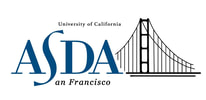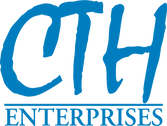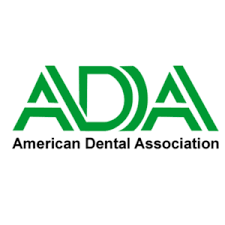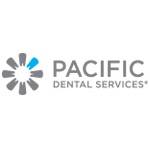Undergraduate/Post-Baccalaureate Preparation
WHAT is the difference between a D.D.S. and a D.M.D. degree?
The D.D.S. degree stands for Doctor of Dental Surgery and the D.M.D. degree stands for Doctor of Dental Medicine. According to the ADA (American Dental Association), they are essentially the same degree. Both degrees have the same curriculum requirements and are awarded by an accredited dental school. It is up to each individual school to decide which degree they would offer to the students.
Do Dental schools have GPA's?
Due to the continuing educational programs (residency, specialties, etc.), dental schools do calculate the grade point averages (GPAs) as your undergraduate institutions do. However, there are a number of dental schools that do not calculate GPAs or rank students amongst a given class. Such schools have adopted the Pass/Fail grading policy with their own passing threshold. Sometimes, a weighted GPA is calculated to identify Honors awards and will only be used for internal purposes only. UCSF has the grading policy of Pass/ No Pass with a passing grade of 70%.
WHAT Does UCSF have a post-bac program?
Yes! UCSF offers the Interprofessional Health Post-Bac Certificate Program to which students interested in dentistry, medicine, or pharmacy may apply to! This program is one year long. For more information, you may follow this link:https://dentistry.ucsf.edu/programs/post-bac
Does the undergraduate school I attend matter for my application?
The answer to this question varies between different dental schools. While your undergraduate institution may play a role in admissions of some schools, other simply do not look at it. The bottom line is that it is neither the most nor least significant factor.
DO I HAVE TO BE A SCIENCE MAJOR TO APPLY TO DENTAL SCHOOL?
No, you do not have to be of a science major to apply to dental schools. However, there are a number of science course requirements that must be fulfilled before you can matriculate into dental school. In addition to the biology, chemistry and physics courses, different schools also vary in their requirements of upper-level courses, such as biochemistry, anatomy, etc. It is recommended that you obtain the updated, complete list of course requirements from the website of each school you wish to apply to.
What elective courses should I take?
Many students choose science-related majors because that’s what they’re interested in, but you can choose any major you like! You must complete the prerequisite courses, however, and it is highly recommended that you also take upper-division science courses.
Can I apply if I don’t have all my prerequisite courses complete yet?
Yes; however (!!), these prerequisite courses must be completed prior to orientation upon matriculation!
When should I consider completing a post-bac program?
This depends on where you are at in the cycle! Are you a reapplicant? Consider applying as soon as the application cycle for the program opens! A first time applicant yet uncertain about the competitive standing of your academics? You may want to apply to such programs to show further understanding and ability to master advanced level courses.
Extracurricular Activities
Do I need to have research experience to get into UCSF?
Nope! While UCSF is a research-oriented institution, it is not a requirement to get into the program. Many students who conduct research while in undergrad use it as a talking point in their interviews and applications and have found new interests and passions because of it.
Are there volunteer/shadowing requirements?
There are no volunteer/shadowing requirements. However, to help yourself stand out and to make sure that dentistry is the career for you, the Office of Admissions recommends at least 100 hours.
What can I do to improve my manual dexterity?
There are many ways to build and fine-tune your manual dexterity. Some examples include: drawing, painting, jewelry-making, ceramics, sewing/needlepoint, learning a musical instrument that requires extensive hand-eye coordination (e.g. piano, violin).
How do I get shadowing and work experience during COVID?
- Though shadowing and volunteer experiences may be limited during the pandemic, the programs to which you are applying to may be looking at the following:
- Are the applicants taking initiative to remain engaged in the field? If so, how?
- Are they communicating with local club chapters or local dental offices to inquire more about the field?
- Despite the pandemic and limitations, try to find a creative way to illustrate your drive in pursuing dentistry!
Dental Admissions Test (DAT)
How do I sign up to take the DAT?
You will first need to obtain a DENTPIN on the ADA website (write it down somewhere because this number is important). The ADA website has more information on this and the rest of the process: https://www.ada.org/en/education-careers/dental-admission-test/apply-to-take-the-dat.
Is there a fee-waiver program for ADEA AADSAS or the DAT?
- Yes! The Fee-Assistance Program (FAP) is for the ADEA AADSAS application. Details can be found here: https://help.liaisonedu.com/ADEA_AADSAS_Applicant_Help_Center/Starting_Your_ADEA_AADSAS_Application/Getting_Started_with_Your_ADEA_AADSAS_Application/03_Application_Fees_and_Fee_Assistance_Program.
- The DAT fee waivers are given through the ADA. Details can be found here: https://www.ada.org/en/education-careers/dental-admission-test/dat-fee-waiver-information.
When should I take the DAT?
It is recommended that you take the DAT after completing the prerequisites of biology and general and organic chemistry. The DAT score is only valid for 2 years, so many students take it after their 3rd year or the year before they apply in case they decide they want to retake it (up to 3 times unless you get special permission by the ADA).
Can I apply if I’m planning on retaking the DAT?
Definitely. Make sure to make note of any changes to the deadlines for each program that you are applying to; the scores take some time to process. You should indicate on your application, within the appropriate section, that you have an exam scheduled and prepare accordingly!
What’s a competitive DAT score?
This answer may vary depending on the programs you are applying to! For certain students, a high DAT score in the sciences/academic average may truly boost their applications. However, others might have lower scores, yet exceed in other areas on their application. The national average for the DAT is 17. Generally, you may find the average DAT score on the website of each dental school to obtain an idea of competitiveness. However, your DAT score is only a part of your application. Different schools vary in their emphasis on different elements on the application, such as the personal statement, interview, GPA, and extracurriculars. At UCSF, they look at each applicant holistically.
How long is a DAT score good for?
The DAT score is valid for 2 years.
Application Process
How do I apply to dental school?
- You can follow the detailed instructions at the ADEA GoDental website (https://www.adea.org/GoDental/Application_Prep/The_admissions_process.aspx)
- If you need more specific instructions on filling out the application, see here: https://help.liaisonedu.com/ADEA_AADSAS_Applicant_Help_Center
Are there supplemental/secondary applications?
- Most schools have supplemental/secondary applications which can be found here: https://www.adea.org/GoDental/AADSAS-Supplemental/. The supplements themselves are typically located in the “Program Materials” section of the ADEA AADSAS application. However, sometimes a school will have their own application on their website, so it’s important to double-check when doing your research on each school.
- UCSF’s supplemental application is located in the “Program Materials” section of the ADEA AADSAS application.
What does “rolling admissions” mean and how does that affect my application?
Rolling admissions means that applications are evaluated as they are received and are accepted over a large time period (typically from June-February, but the deadline can vary based on the school). Applying early in the cycle may increase your chance of admission.
What schools should I apply to?
It is important to do your research on each school you want to apply to and make sure that your values align with theirs and vice versa. While it is definitely prudent to apply to safety, target, and reach schools, it is also important to be able to envision yourself potentially at any of the programs you apply to, as reapplying after being accepted to a school is generally frowned upon. Each dental school has unique things to offer to its student body, and you will become a dentist no matter what school you go to!
How many letters of recommendation do I need?
- UCSF requires a minimum of 3 letters of recommendation: one from a science instructor (e.g., biology, chemistry, anatomy), one from a dentist, researcher and/or mentor whom you have worked with, and one additional letter of your choice.
- Alternatively, you may submit a committee/composite letter written by the pre-health committee at your undergraduate institution.
- According to the ADEA AADSAS application site, you may submit up to 4 individual letters of recommendation OR one committee letter and one individual letter
What is a committee letter?
A committee letter (also known as a composite letter) is a letter written by a pre-health committee typically at your undergraduate institution. It offers evaluation and advocacy on your behalf by highlighting your background, accomplishments, and qualities written in your letters of recommendation, and outlines your overall preparation and motivation for pursuing a career in dentistry.
What are dental schools looking for in an applicant?
At UCSF, the admissions offers are looking for someone who shows leadership potential, involvement in community service, some form of individuality or uniqueness, as well as a true passion for this exciting field! They are looking for applicants who are 100% committed to attending and completing dental school.
I’m from out-of-state. Should I still apply?
Absolutely! If you believe that UCSF could be the right school for you, do not be discouraged by your current residence! The UCSF SOD encourages all students to apply; preference is not given to in-state applicants.
Interview Process
How long are the interviews?
Interview days begin in the morning and last through the late afternoon. The day includes a tour, presentations, and information sessions in addition to the interview itself.
What is the interview format?
UCSF’s interview is closed file, meaning that your interviewers will know nothing about you and your application besides your name.The interview is 1-on-1 with a student then a faculty member (or vice versa).
What should I wear?
Business professional attire is the rule of thumb for any interview. You can express yourself in various ways (e.g. with a colored tie, manicured nails), but it is imperative that you wear clothes that are clean, neat, and professional.
Has anything changed this cycle (2020-2021) due to COVID-19?
Yes, due to COVID-19, the following changes are being implemented:
- The deadline to submit your application for the UCSF School of Dentistry is November 16th, 2020.
- According to the ADEA AADSAS, notification of first acceptances will now be released on December 15th for the 2020-2021 application cycle.
- You may now submit your application with official OR unofficial DAT scores.
- The interview for the UCSF SOD will be held virtually; however, it is still “closed file.” Each student will interview with 1 faculty member and 1 current dental student.
International Students
How should I start an international application?
For anyone interested in the International Dentist Pathway program, you can check out this link: https://dentistry.ucsf.edu/programs/international-dentist-pathway
Or check out our IDP Page Here!
For inquiries, you may email: IDPAdmissions@ucsf.edu
Or check out our IDP Page Here!
For inquiries, you may email: IDPAdmissions@ucsf.edu



